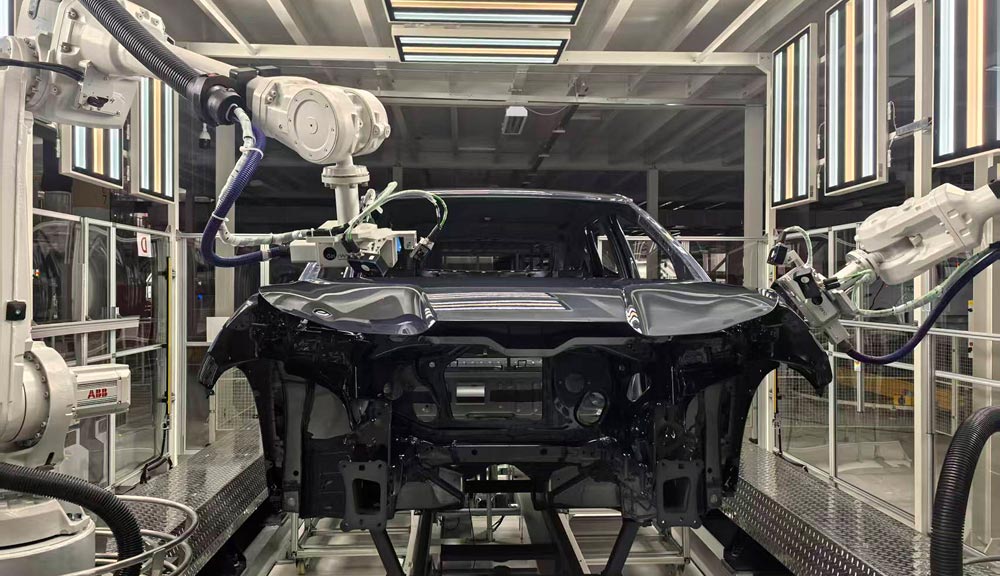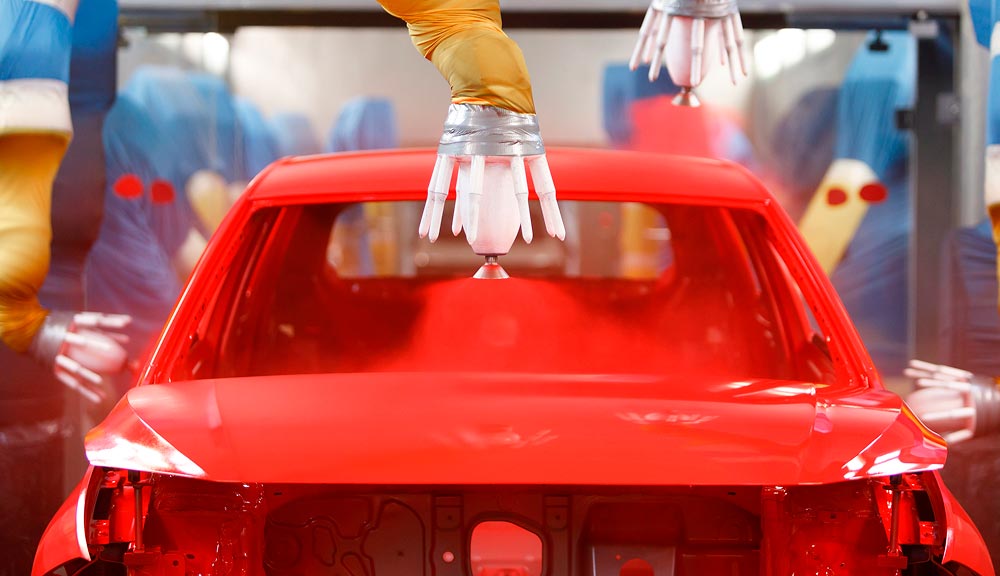Coatings serve as a protective barrier shielding surfaces from environmental damage.
When undertaking a painting project, the key to effectiveness lies in ensuring a high-performance coating. Performance hinges on two critical factors: the paint quality and the coating thickness.
While the common assumption is that thicker coating layers equates to superior protection, this is only sometimes true. Excessive thickness can result in an uneven textured finish and susceptibility to cracking under external forces. When surfaces feature cuts and grooves, opting for a thick coating is counterproductive.
Achieving the optimal balance of protection and aesthetic appeal requires proper coating thickness. Precise control and monitoring of film build are essential to prevent under or over application. This approach ensures a polished surface finish and optimal performance and durability.
The automotive industry places significant importance on regulating the coating layers applied to their vehicles. In the ever-evolving landscape of automotive manufacturing, industry leaders aspire to attain optimal performance and competitiveness by prioritizing key objectives.
Achieving these goals requires the integration of cutting-edge film build measurement technology, a crucial component in reshaping industry standards.
But, why?:
1. Cost savings: time, materials & energy
Efficient resource utilization is a fundamental aspiration for automotive manufacturers. The goal is to save time, materials, and energy costs, ultimately enhancing operational efficiency and financial viability.
2. Reduction in reworks & wastes
Minimizing errors and waste in the production process is a central objective for sustainable and economically sound operations. Manufacturers aspire to implement precision technologies that reduce the need for reworks and minimize material wastage.
3. Elevated quality control standards
The pursuit of elevated quality control standards remains a constant in the automotive sector. Leading manufacturers seek to implement technologies that provide accurate and real-time data, ensuring that each coating meets the stringent quality standards required for superior automotive finishes, with perfect color matching and avoiding typical problems such as orange peel on the coating, among others.
4. Agile decision-making with real-time data and analytics
In the fast-paced automotive industry, agile decision-making is a strategic objective. Manufacturers aspire to harness real-time data and analytics capabilities, empowering them to make informed decisions promptly and enable full automation in order to stay ahead of industry trends.
5. Minimization of environmental impact
Environmental sustainability is a key concern for automotive manufacturers. To minimize the overall environmental impact associated with manufacturing, manufacturers aim to optimize coating processes and reduce waste in alignment with eco-friendly practices.
These aspirations underscore the importance of investing in the best-in-class coating thickness measurement technology, as das-Nano Irys.
Manufacturers strive to balance efficiency, quality, and sustainability, integrating advanced measurement solutions becomes a key step toward achieving these objectives in the competitive automotive landscape.
This text is an extract from the Automotive Buyers Guide for Thickness Measurement Technologies, which you can download for free here:https://23048b.ttandemdigital.com/automotive-buyers-guide/



